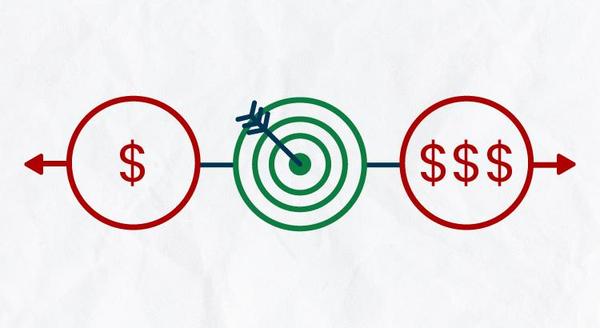
Did You Miss Your Window to Sell Your Home?
Is the housing market still a seller's market, or is it finally showing signs of slowing down? And what could the changing market conditions, if this profound shift is happening, mean for you as a seller? Leading real estate professionals have been predicting that the seemingly endless growth in home prices, coupled with an unprecedented shortage of home listings, wouldn't last forever. Several factors suggest that the pivotal moment for housing markets across the country is at least around the corner. As a seller, you may have been waiting for the best possible time to sell your home, or you weren't ready to sell until now due to personal circumstances. But have you missed your window to sell your home in the post-pandemic seller's market? Here's how you should navigate the changing market conditions if you are listing your home for sale and what an experienced real estate agent can do to help. New construction numbers increase, but will that correspond to a price fall? May has seen the most significant influx of new homes since June 2019. But does an increase in the number of new listings correspond with an end of the supply-demand gap fueling the unprecedented housing market growth over the past couple of years? There is some indication that the long decline in new instructions, which began skewing the market in sellers' favor even before the pandemic started in 2020, is finally coming to an end. Not quite. If we look at the figures a little closer, we'll see that while the supply end of the housing market chain is slowly recovering, it's still nowhere near the levels of 2017-2019. For context, the number of active sale listings is still less than half pre-pandemic levels. So, purely looking at the supply-demand ratio, it's got a long way to go to becoming as saturated with available homes as it was in 2017. We're still very much in a seller's market. It's also worth noting that summer is peak time for new instructions. The spike in new homes on the market won't necessarily translate into an annual trend. So far, the number of new listings has grown by only eight percent year on year. As for home prices, they are still rising, at least for the time being. As interest rates rise, the number of eligible home buyers will inevitably reduce. The aspiration toward home ownership remains so strong that what we're seeing now is what Matt Vernon, head of retail lending at Bank of America, has seen as an aggressive' market. This is where higher rates push buyers into the market to secure a home before any further rate hikes. The result? Homes listed for sale are still not staying on the market very long, and home prices are continuing to climb. You may not get as many offers as a seller on the day your listing goes live as last year. Still, homes are not failing to sell, and they're going fast—within a month of being listed on average. Local context is always king Median home prices and nationwide trends always need local, regional nuance to understand how changing market conditions will affect you personally. One thing worth noting is that, right now, large metropolitan areas are recovering significantly from the relative lack of interest during the pandemic. This has created migratory patterns from expensive coastal and urban areas into medium-sized metropoles and suburban areas. The other trend you should be aware of a seller is that interest rate increases will inevitably hit the lower tiers of the market hardest, meaning that first-time buyers will find it the most difficult to qualify for a mortgage. If you are about to sell a higher-tier family home, you have less to worry about than if your prospective buyer is a first-time homeowner. But even within the first-time buyer market segment, regional variations will play a key role. This is where a real estate agent with in-depth local knowledge becomes valuable. A real estate agent with experience in your particular type of home in the area where you're planning to sell will have seen it all. They will know precisely who and how to market your home to, ensuring it sells at the best possible price within a desirable timeframe.

6 Things Sellers Need to Know Today that Weren't True Last Year
The housing market has been a seller's market throughout the pandemic, but is this still the case? The current trends are pointing towards an end to the real estate market conditions that created a bonanza for sellers. Many issues created a high-pressure market environment severely skewed in favor of sellers. From sky-high home prices, intense competition between buyers, and tactical play from sellers waiting for the right moment to put their homes for sale. It's worth saying outright: things are changing, and there are things home sellers need to be aware of today that weren't true last year. Here's what they are: 1. Home prices growth is returning to pre-pandemic levels This is not the same as saying home prices are declining; they're not. Prices are still growing and won't begin falling in the foreseeable future. It's the rate at which they're increasing that's changing. All the signs point to a return to pre-pandemic levels of growth. So, instead of the unprecedented near-20% year increases, we're now seeing the more modest 7-8% year-over-year growth, according to the Zillow Home Value Forecast. The number of home sales expected to go through in 2022 is 5.46 million,10.8 percent down from 2021. This means that the waiting game is over for sellers in practice. You might have been thinking about selling your home but were waiting for home prices to reach their peak to maximize their returns on the sale. But the peak has already passed. It is doubtful that we'll see any more of the skyrocketing levels of home price increases any time soon. So, if you're unsure whether you should be putting your home up for sale right now, the answer is yes. 2. Popular relocation hotspots have the highest home prices The way local home prices behave is always different from national averages. An area that's extremely popular with homebuyers will have different housing market conditions from one that homebuyers are keen to leave. In many cases of post-pandemic migration patterns, these local conditions have a marked effect on home values. If you are in a popular neighborhood, you are in luck. You can command a higher home price even if the overall trend is for slower growth. Redfin calls these "migration hotspots" and reports that they have the highest inflation rates. If you're not in one of those areas, you can still sell at a reasonable price if you know who your potential buyers are. An excellent real estate agent with local knowledge of your area can help find these buyers. 3. More affordable areas are in demand The overall trend among homebuyers right now is downsizing and saving on housing as much as possible. Moving patterns indicate a strong preference for more affordable areas. People are moving from the biggest and most expensive cities to smaller urban and suburban areas. These smaller communities offer good amenities and schooling but don't cost as much as the traditional vast metropolitan areas. Home sellers need to be aware of this. This doesn't mean you won't be able to sell if you are a home seller living in a metropolitan area. There is always movement both ways, and a general pattern away from a city doesn't equal an exodus. You need to market your home to the right buyer. 4. Homebuyer competition is still incredibly high As a home seller, you will see headlines like "homebuyer competition drops to the lowest levels in two years" and think you'll struggle to sell. This is not the case. Homebuyer competition pre-pandemic was already very high, with record numbers of millennial homebuyers entering the housing market in search of their first home. This is a generational trend, and it won't go away any time soon. Indeed, you may not sell your home within days of it going on the market, as was so often the case during the pandemic. But you will still sell within weeks in many places. 5. You may not get your first buyer One of the most prominent features of the pandemic-era housing market conditions was that many homebuyers were willing to waive contingencies to secure a home. There is evidence that this is no longer the case. As Redfin deputy chief economist Taylor Marr says: "buyers are increasingly keeping rather than waiving inspection and appraisal contingencies. That gives them the flexibility to call the deal off if issues arise during the home buying process". Some buyers may call off a deal after finding a cheaper home. Others may be forced to backtrack after a mortgage application falls through. While inconvenient, this is a common occurrence and something you must prepare for by giving yourself more time to sell this year than last year. 6. An experienced real estate agent is more important than ever Housing market conditions are a little trickier for home sellers this year than last year. It is even more critical this year than last year to get a real estate agent with solid experience and expertise in selling your type of home in your area. This will maximize your return on the sale and minimize the potential for delays and a deal falling through.

Buying or Selling in the Next 12 Months: What You Need to Know Today
There are many different reasons you might be thinking about selling your home. Perhaps you want to downsize (or upsize), perhaps you want to take advantage of the market, or maybe you need to move to another area of the country for your company. Regardless of the reasons, there are many things to consider before you speak with a real estate agent. You probably already have a good grasp of how the home-buying process goes since you've done it at least once before. But if this is your first time selling a home, there’s plenty more to learn. Even if you have sold a home in the past, the market is always changing. If you're thinking about buying a home within the next year, or buying a home after you sell your current one there are a few things that you can get started on to make the process that much smoother when you are ready to go house hunting. Deciding To Sell Your Home: What You Should Do First Once you do decide you want to sell your home, there are several things you can do before you contact a real estate agent. The first is to prepare your home to be sold, and that usually means a lot of cleaning and sometimes some maintenance and repairs. Even in a seller’s market, you’ll want to make your home look as inviting and attractive as possible in order to receive a great offer. Homebuyers who will be looking at your home are more likely to make an offer right away if your home appears desirable, as they’ll be hoping to secure a home before another prospective buyer comes along. Declutter Your Living Space When you were a first-time homebuyer, you probably saw several houses that still contained furniture and the occupants’ belongings. This is normal when the homeowners haven’t moved out yet. But you might also recall that some homes appeared a lot tidier and well-maintained than others. Think about that when preparing your own home for future sale. You’ll want to spend a good amount of time getting rid of any clutter and junk you don’t need. Even old, worn furniture and décor items should be removed. (You can put them in a storage unit or your garage if you have space.) The idea is to present a neat living space to prospective buyers. Make Necessary Repairs Truthfully, this is up to you. In a seller’s market, you can likely get away with not making some repairs, since buyers are more desperate to secure a home. However, some first-time homebuyers might want the security of a home they know is in good shape. There’s also a difference between necessary repairs and home improvements. For example, it might be necessary to replace the hot water heater but not to renovate the kitchen or the bathroom. If you’re unsure which things you should spend your money on, focus on the most obvious maintenance issues that a home inspector will definitely point out. Check Out the Market Have any homes similar to yours in the area sold recently? That might give you a good idea of what you could get for your home. The online sites providing estimates can serve as a good baseline, but they don’t always know the specifics of your local area or any specific improvements you’ve made in your home. Take this into consideration before you talk to a real estate agent. The agent will, of course, be more familiar with the current conditions of the market and how things are selling in your area. And once the agent sees your home, they will be able to give you a better idea of what it might sell for. Just remember to price it realistically. Even in a seller’s market, pricing your home too high could mean you’ll be waiting a while to sell. Finally, Contact an Agent Once you’ve done all of the above, you are ready to contact an agent. Unless you already know an agent who you’d like to work with, you’ll want to interview a few different agents. You’ll be working with the agent of choice for a bit, so you want to ensure you feel comfortable with whomever you choose. Ask each agent for a comparative market analysis, as well as the details of their plan on how they will market your home. You also want to ensure that the agent will have time for you and your home.
Categories
Recent Posts










